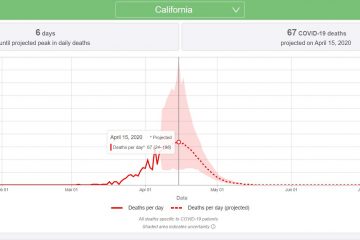The Tech Workers Helping to Unionize Big Tech
By Matthew Gerring
If you need more proof that nothing in politics is predictable anymore, look no further than the April 2017 meeting of the Tech Worker’s Coalition — about 35 people, most of them software engineers, many from household-name tech companies in Silicon Valley, sitting in a run-down union hall in the Tenderloin, talking about the evils of capitalism and organizing the workers from below to take on the bosses.

Via Tech Workers Coalition facebook page
It would be difficult to take this seriously if the group were arguing for better working conditions for themselves, but organizers are quick to emphasize the group isn’t here to unionize software engineers.
“That’s not even a goal for me,” said Ares Geovanos, chemical engineer and member of the Tech Worker’s Coalition. “I’m interested in immediate wins and building from there.”
The wins they’re after are better pay and working conditions for Silicon Valley’s service workers: janitors, cafeteria workers, security guards, and others, especially those working on tech company campuses. Despite working for some of the most profitable companies in the world, these workers are routinely paid less than the basic cost of living in Silicon Valley and rarely receive benefits.
Andrew Barney, a cafeteria worker at Intel in Santa Clara, was used to the relatively low pay in the food service industry before he moved to the Bay Area in 2013. But he said the high cost of living was still a shock.
“Lower paying jobs in different areas of the country don’t mean that you’re in a perpetual crisis mode the way they do in the Bay Area,” he said.
Barney’s high hopes for improvement when he started working at Intel in 2015 were quickly let down. His starting pay, $11.65 an hour, didn’t leave him much breathing room, and many of his co-workers commuted from as far away as Stockton to find affordable housing.
Barney and his co-workers voted to unionize last September. Their campaign won them wage increases, paid vacation, sick leave and health care benefits. Those new benefits came in handy when Barney was injured in a car crash in February, leaving him with medical bills he said would have crushed him otherwise.
Service worker unions UNITE HERE and SEIU, part of a coalition called Silicon Valley Rising, have won a handful of these campaigns in the last several years. TWC’s members have served as fixers — when union organizers can’t get onto tech campuses, TWC members have connected with service workers and directed them to information about the union.

Unite Here: hotel and restaurant workers’ union of San Francisco and San Mateo counties
“We’ve played kind of a peripheral role in a lot of things,” Geovanos said. “I wouldn’t say we’ve won anything for anybody.”
But the person-to-person organizing work has been a valuable education for the group, said Matt Schaefer, one of the Coalition’s founders.
“I’ve talked with other workers at tech companies who’ve been learning more about these things too, and they’ve had a similar experience — they’re seeing the workers that maybe in the past blended into the background for them,” he said.
“Blending into the background” is sometimes intentional — Barney said his supervisors told him to “be seen and not heard” whenever he worked a catered event in the Intel offices. He said the rare chance he had to talk to engineers as in the cafeteria, and even then he faced possible repercussions.
But the social divide between the different groups of workers also plays a role, he said. “A lot of well-intentioned good people struggle with basic interactions with service workers, and that is a little distressing”.

Google Bus protest in San Francisco. Image via Business Insider
That divide between tech workers and everyone else has become a well-known fact of life over the last few years in the Bay Area. It’s always in the background, sometimes in wildly contradictory ways, like “QUEERS HATE TECHIES” stickers on the backs of MacBooks in coworking spaces.
While the Tech Worker’s Coalition has grown exponentially since Trump took office, it has its roots in the moment when that simmering resentment against tech workers boiled over into the streets in the form of the tech bus blockades in late 2013.
Peter Gabel, an academic, author and community organizer who’s lived in San Francisco’s Noe Valley neighborhood since 1979, said for his neighbors, the buses were one more sign they were being replaced by newcomers whose identities didn’t match the “ethnically diverse, artistic, political” profile the neighborhood was used to, who had no apparent desire to be a part of the existing social fabric.
“In the years that I lived here, everybody came here for the politics. They wanted to be involved at some level in the political life of the city. I don’t think that was true at all of the tech arrivals,” he said. “I’m not sure how much they identify with the progressive core of San Francisco, as a liberatory place.”
Just as the bus blockades broke out, Gabel was promoting his new book of essays, Another Way Of Seeing, which argues that all people have a longing for community and mutual recognition. During a launch event at a Noe Valley book store, an audience member challenged him on that point — didn’t these techie newcomers disprove that idea? Here was a group of people who didn’t know the community, didn’t want to be a part of the community, and were displacing the community — what about them?

Protest against forced evictions in the Mission District, SF
Gabel said he believed there were progressive people in the tech industry buried under a negative stereotype, and believed it was important to make space for their politics to emerge. “The risk is that they’ll get buried under the stereotype and just say ‘to hell with it,’” he said. “She sort of challenged me and said ‘How are you going to do that?'”
The next morning, he got his chance. He encountered a neighbor in a coffee shop, who said he was afraid to go to his bus stop because of the ongoing protests. Gabel suggested they have a meeting and talk about it. His neighbor declined, but suggested he talk to Matt Schaefer instead.
Schaefer, who grew up in rural Minnesota, moved to San Francisco in 2012, partly for work and partly for the city itself. “I wanted to be a part of a vibrant and progressive city, but I understood that the money coming in was creating a lot of problems,” he said.
“Not a lot of conversation was happening, at least within groups in our neighborhood, in Noe Valley, between newcomers to the neighborhood, who might be riding the shuttles, and community members who’d been living there a long time,” Schaefer continued, “There was no place for progressive tech workers, people who were interested in improving their communities, improving their neighborhoods… there was no place for those folks to find each other, and no clear place for community members or community organizations to engage those people.”
So they arranged a meeting. Gabel said it was clear that Schaefer had the motivation, but had no idea how to act on it. “The main thing was, ‘How do you organize a meeting? Who do you invite? What does the agenda look like? What should our name be?’”, he said.

Nov. 10 Day of Action – Fight For $15 – via SEIU Facebook
The answer to all those questions came from Rachel Melendes of UNITE HERE, who was actively looking to connect with tech workers. Melendes moved to San Jose from the Southwest in 2012 to organize hotel workers in the South Bay and the Peninsula. She wanted to start approaching the big customers of the hotels, many of which were major tech companies, but she was hamstrung by the same social and cultural divide faced by everyone else.
“There’s how many thousands of people who work in tech in the area, and I had no clue as to how to start looking for them,” Mendes said. “So I just started asking everybody that I knew and that I work with, and who they know, if they knew anybody who worked in tech who would be into doing stuff with us. And into organizing. And into being a part of taking back power in the city.”
Melendes followed a few “false leads” before Jakes arranged an introduction to Schafer, and they became the nucleus of the Tech Worker’s Coalition.

Tech Workers Coalition via twitter.com/techworkersco
Now, the group regularly has between 30 and 50 people at its monthly meetings, and a little over 100 people active on its Slack channel. Recruitment at first was slow and sporadic, and spiked in the second half of 2016. Melendes said the “big bang” happened after the election — the December and January meetings were the biggest the group ever had.
Some members, like Paige Planter, who works for a company promoting diversity in tech, joined out of their disillusionment with the industry. She saw Melendes speak on a panel at a Rainbow/PUSH Coalition event, where she pointed out that there’s already lots of racial diversity at companies like Google when you include cafeteria workers and janitors.
“I was like, ‘Well that’s kind of a more interesting problem,’” Planter said. “Who cares about diversity or equal representation for the top 1% of America?”
Others, like Geovanos, found the group through their existing class-oriented politics. He said he read about worker retaliation against cafeteria workers at Intel and contacted UNITE HERE with his own plan to mobilize tech workers when Melendes reached out to him to invite him to a meeting.

Since then, Geovanos has helped recruit tech workers already engaged in class-oriented politics, especially from Bay Area chapters of Democratic Socialists of America, which have also surged since the election, and reading groups for the socialist magazine Jacobin.
He said it’s not as strange as it might look for tech workers, especially people new to the industry, to identify with the working class.
“Not everyone went to the Stanford CS program,” he said. “We organize with people who have been baristas their whole lives and then went to a [coding] bootcamp and now have a steady income. This is one of the only stable sectors of the economy — that’s why people move here.”
Geovanos himself worked in construction before the 2008 financial crisis hit, wiping out most of his work, prompting him to go back to school for engineering and move to the Bay Area.
He also said there’s a larger variance in salary than most people outside the industry realize.
“We had a meeting the other day where we talked about our salaries — it went from $40,000 to $200,000,” he said.
Most of the Coalition’s members are brand new to any kind of political organizing, so training from the unions has been critical, according to Schaefer — tech workers are used to organizing and communicating online, but working with the unions has introduced them to organizing tactics that depend on person-to-person relationship building. “I’ve been impressed,” he said.”I think that’s a pretty powerful way of organizing.”

via Unite Here, an international labor union that represents 270,000 working people across the U.S. and Canada.
As tech CEOs have moved to define the political alignment of the tech industry in the Trump administration, the Tech Worker’s Coalition and other groups like it are arguing for a seat at the table, taking the position that the people building the tech industry’s products should have a say in what gets built, and to what end.
In January the Coalition held a protest at the headquarters of Palantir, a provider of data mining software to law enforcement and intelligence agencies,demanding the company commit to not cooperate with the Trump administration’s plan to build a Muslim registry.
In late April the large tech incubator YCombinator held an invite-only event called the Tech Worker’s Values Forum. In response the Coalition held its own event, called “Tech Worker’s Values: An Open Forum” at the same time, mere blocks away, and invited all tech workers and community members to talk about what the tech industry’s values should be.
There’s almost certainly trouble ahead as the Coalition moves to take on these larger goals, Melendes said.
“My inclination is that these companies are going to retaliate against them standing up. Because that’s what companies do with labor organizing — they don’t want workers talking to each other. They don’t want workers sharing their opinions about how to do things,” she said.
But perhaps the biggest challenge of all is the social and cultural divide that persists in the Bay Area. The Tech Worker’s Coalition is still building trust among other progressive groups and organizers, and the group’s activity on the Internet frequently attracts comments from people doubting that the group is acting in good faith.
And the basic challenge of relating across the social divide remains a problem. Baristas and cafeteria workers on tech campuses say they still deal with disrespect and entitlement from the people they serve, and better pay and benefits won’t fix that. Many white collar tech workers say they still have trouble forming relationships with service workers on their campuses, especially since there aren’t many places workers of all kinds can mingle with each other.
There’s one notable exception: Andrew Barney said he doesn’t recommend smoking, but he said the campus smoking section — outdoors, somewhere in the back of the building where nobody can see — remains one of the few areas of common ground for the entire working class.









